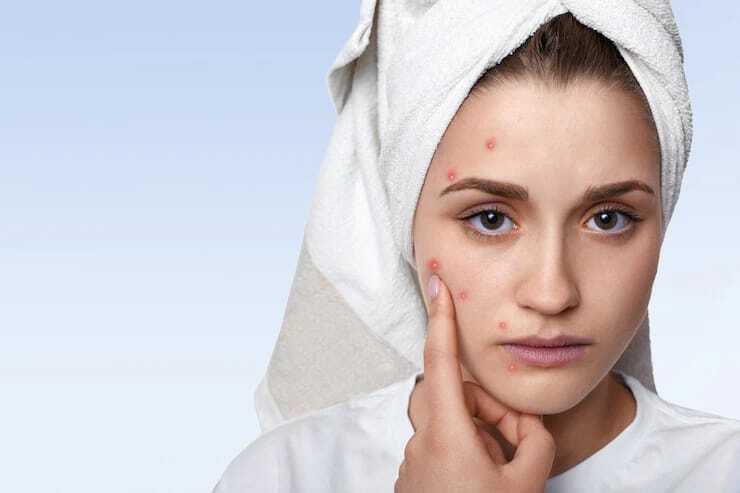
This is where natural home remedies for acne come in. These remedies are gentle on the skin, cost-effective, and often use ingredients already available in your kitchen. Whether you’re looking for a spot treatment, a soothing mask, or a daily toner, nature has the answer. In this article, we’ll cover 10 unique and effective home remedies that are safe, easy to use, and backed by both tradition and science
Uses: Antibacterial, anti-inflammatory
How to Use:
Make a paste of fresh neem leaves and apply it to acne-prone areas.
Boil leaves in water and use the strained liquid as a face rinse.
Benefits:
Clears acne-causing bacteria
Reduces inflammation
Prevents future breakouts
Uses: Antioxidant-rich, oil-controlling
How to Use:
Brew green tea and let it cool.
Apply with a cotton pad or spray it on as a toner.
Benefits:
Balances skin oil
Soothes redness
Fights bacteria naturally
Uses: Antibacterial, pore-unclogging
How to Use:
Dilute with a carrier oil and apply on blemishes with a cotton swab.
Benefits:
Reduces redness and swelling
Kills acne bacteria
Speeds up healing
Uses: Antimicrobial, exfoliating
How to Use:
Mix 2 tbsp honey with 1 tsp cinnamon.
Apply for 10–15 minutes and rinse off.
Benefits:
Kills bacteria
Exfoliates and brightens
Moisturizes without clogging pores
Uses: Soothing, anti-inflammatory
How to Use:
Apply fresh aloe vera gel directly to the skin daily.
Benefits:
Calms redness
Speeds healing
Hydrates acne-prone skin
Uses: Natural astringent
How to Use:
Mix 1 part ACV with 3 parts water.
Dab on the skin using a cotton pad.
Benefits:
Balances skin pH
Dries out pimples
Reduces oily skin
Uses: Anti-inflammatory, brightening
How to Use:
Mix 1 tsp turmeric with 2 tbsp yogurt.
Apply for 15 minutes, then rinse.
Benefits:
Brightens skin
Reduces acne and marks
Gently exfoliates
Uses: Quick fix for inflammation
How to Use:
Wrap an ice cube in a cloth and apply on pimples.
Benefits:
Shrinks swollen pimples
Calms irritation
Instant relief from rednes
Uses: Natural toner and astringent
How to Use:
Apply directly with a cotton pad after cleansing.
Benefits:
Tightens pores
Reduces oil and inflammation
Prevents future breakouts
Uses: Exfoliating and moisturizing
How to Use:
Mix cooked oatmeal with honey and gently scrub the face.
Benefits:
Removes dead skin
Unclogs pores
Nourishes sensitive skin
Q1: How long do natural remedies take to work on acne?
A: Natural remedies typically take 1 to 4 weeks to show noticeable results. Consistency is key. Unlike chemical treatments, they work gradually and are gentler on the skin.
Q2: Can these remedies be used on sensitive skin?
A: Yes, most of these remedies (like aloe vera and oatmeal) are suitable for sensitive skin. However, always do a patch test first.
Q3: Is it safe to use multiple remedies together?
A: You can rotate remedies, but avoid layering too many at once. For example, use aloe vera daily and a turmeric mask 2–3 times a week.
Q4: Do these remedies work for cystic acne?
A: For severe or cystic acne, natural remedies can help reduce inflammation, but it’s best to consult a dermatologist for medical treatment as well.
The home remedies listed above are based on traditional usage and supported by some scientific evidence. However, individual results may vary. If you have severe, persistent, or painful acne, it's important to consult with a certified dermatologist. These remedies are not substitutes for medical advice or prescribed treatments.